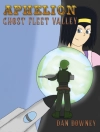Approaching his fiftieth birthday, the narrator in My Two Worlds is wandering in an unfamiliar Brazilian city, in search of a park. A walker by inclination and habit, he has decided to explore the city after attending a literary conferencehe was invited following the publication of his most recent novel, although, as he has been informed via anonymous e-mail, the novel is not receiving good reviews. Initially thwarted by his inability to transpose the two-dimensional information of the map onto the impassable roads and dead-ends of the three-dimensional city, once he finds the park the narrator begins to see his own thoughts, reflections, and memories mirrored in the landscape of the park and its inhabitants.Chejfec’s My Two Worlds, an extraordinary meditation on experience, writing, and space, is at once descriptively inventive and preternaturally familiar, a novel that challenges the limitations of the genre.Sergio Chejfec, originally from Argentina, has published numerous works of fiction, poetry, and essays. Among his grants and prizes, he has received fellowships from the Civitella Ranieri Foundation in 2007 and the John Simon Guggenheim Foundation in 2000. He teaches at NYU.Margaret Carson translates contemporary poetry, fiction, and drama from Latin America. She also teaches in the Modern Languages Department at Borough of Manhattan Community College.
About the author
Sergio Chejfec, originally from Argentina, has published numerous works of fiction, poetry, and essays. Among his grants and prizes, he has received fellowships from the Civitella Ranieri Foundation in 2007 and the John Simon Guggenheim Foundation in 2000. He teaches at NYU.Margaret Carson translates contemporary poetry, fiction, and drama from Latin America. She also teaches in the Modern Languages Department at Borough of Manhattan Community College.












